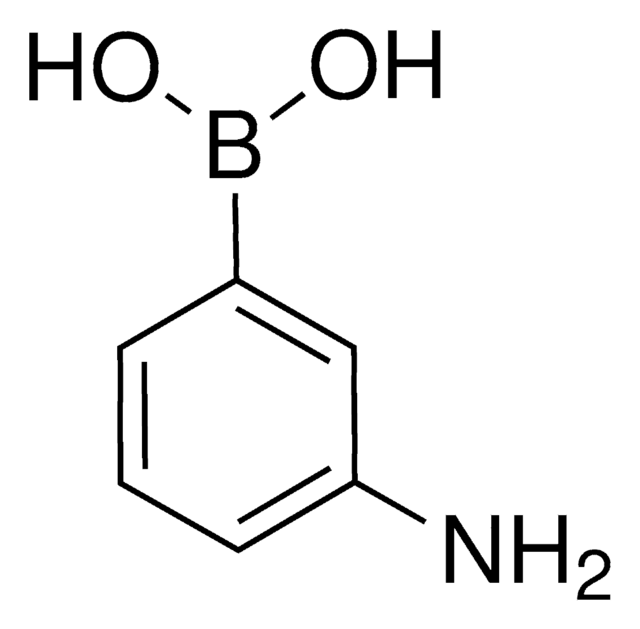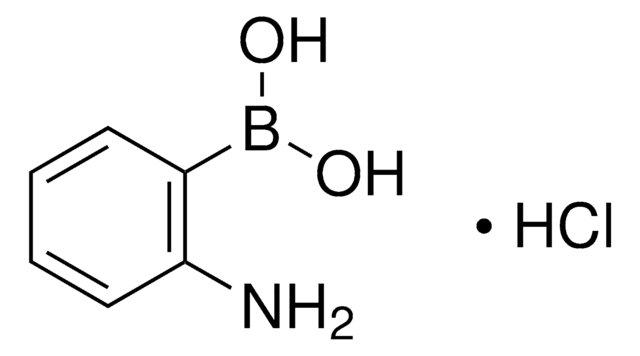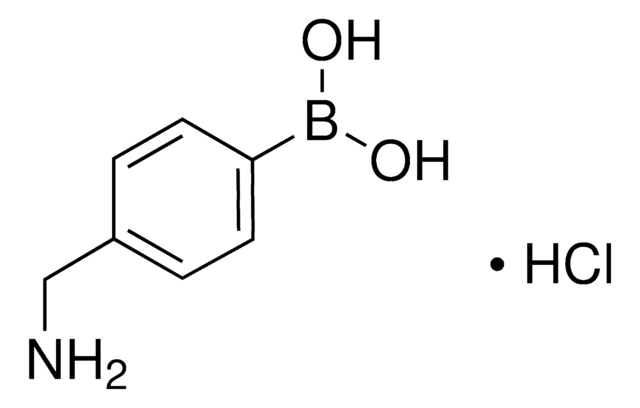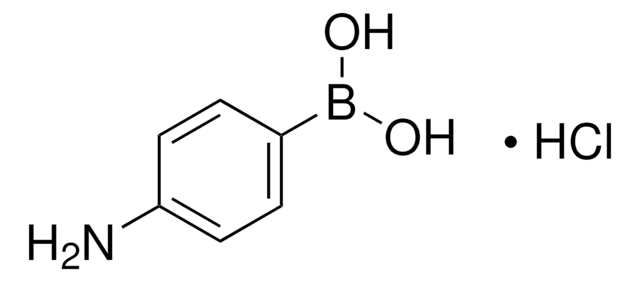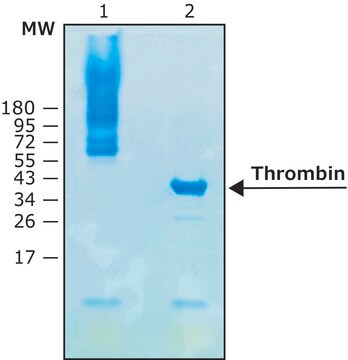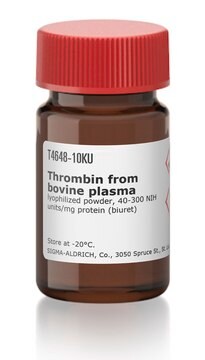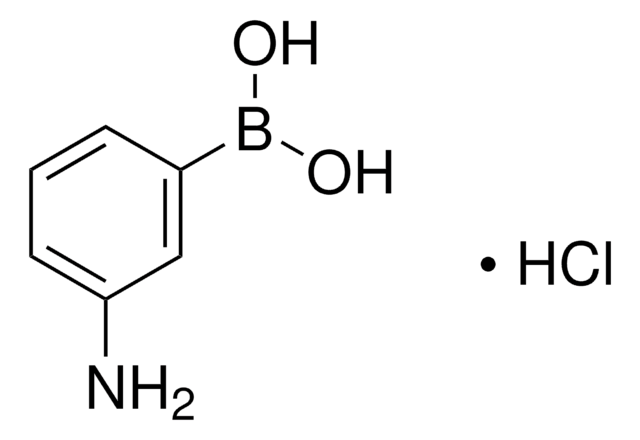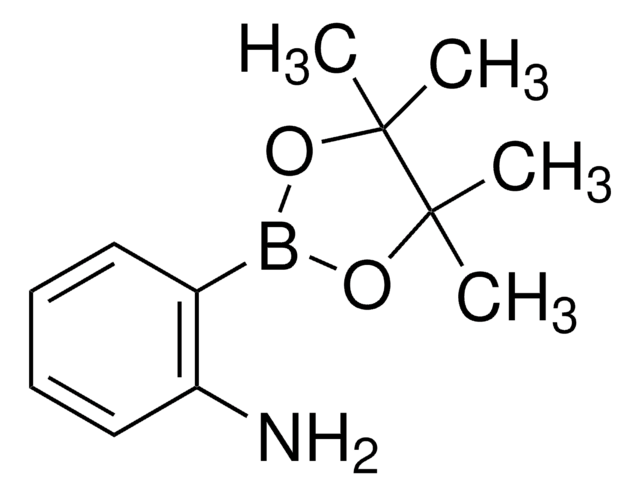Wszystkie zdjęcia(2)
Key Documents
912530
(4-((((2-Aminoethyl)carbamoyl)oxy)methyl)phenyl)boronic acid hydrochloride
≥95%
Synonim(y):
Amino boronic acid nuclear tag, Benzyl boronate tag, Nucleus-targeting probe building block
Zaloguj sięWyświetlanie cen organizacyjnych i kontraktowych
About This Item
Wzór empiryczny (zapis Hilla):
C10H16BClN2O4
Masa cząsteczkowa:
274.51
Kod UNSPSC:
12352106
Polecane produkty
Próba
≥95%
Postać
powder or crystals
temp. przechowywania
2-8°C
Zastosowanie
(4-((((2-Aminoethyl)carbamoyl)oxy)methyl)phenyl)boronic acid hydrochloride is a benzyl boronic acid tag for the subcellular targeting of cargo to the nucleus. Intracellular targeting can be important for understanding the localization of metabolites, proteins, or chemical probes or to increase therapeutic efficacy by concentrating a drug at its site of action and reducing off-target effects. Localization specifically to the nucleus is typically achieved using peptide localization signals and/or relies on passive diffusion. It was recently demonstrated, however, that nuclear targeting could be accomplished instead with a small-molecule motif benzyl boronic acid via synergistic active and passive transport processes. Tang, et al, presented examples using this tag to deliver proteins to the nucleus by the importin α/β pathway, including fluorescent proteins, ribonuclease A (RNase A), and chymotrypsin. The conjugation of this nucleus-targeting building block to other proteins or small molecules will facilitate nuclear localization in varied chemical biology experiments.
This page may contain text that has been machine translated.
produkt powiązany
Numer produktu
Opis
Cennik
Kod klasy składowania
11 - Combustible Solids
Klasa zagrożenia wodnego (WGK)
WGK 3
Temperatura zapłonu (°F)
Not applicable
Temperatura zapłonu (°C)
Not applicable
Wybierz jedną z najnowszych wersji:
Certyfikaty analizy (CoA)
Lot/Batch Number
Przepraszamy, ale COA dla tego produktu nie jest aktualnie dostępny online.
Proszę o kontakt, jeśli potrzebna jest pomoc Obsługa Klienta
Masz już ten produkt?
Dokumenty związane z niedawno zakupionymi produktami zostały zamieszczone w Bibliotece dokumentów.
Rui Tang et al.
Journal of the American Chemical Society, 139(25), 8547-8551 (2017-06-10)
Active intracellular transport is a central mechanism in cell biology, directed by a limited set of naturally occurring signaling peptides. Here, we report the first nonpeptide moiety that recruits intracellular transport machinery for nuclear targeting. Proteins synthetically modified with a
Nasz zespół naukowców ma doświadczenie we wszystkich obszarach badań, w tym w naukach przyrodniczych, materiałoznawstwie, syntezie chemicznej, chromatografii, analityce i wielu innych dziedzinach.
Skontaktuj się z zespołem ds. pomocy technicznej